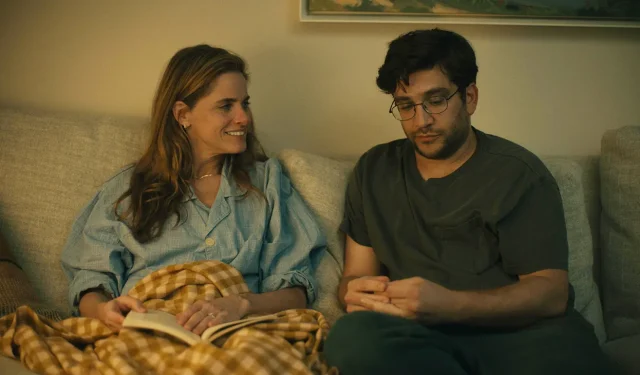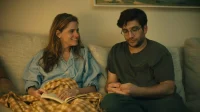Exploring Perspectives in Romantic Dramas: A Review of Fantasy Life
Recent cinematic trends have spotlighted relationships featuring older women and younger men, often centered on the female experience. Films like The Idea of You and Babygirl delve into themes of female sexual awakening, focusing on the exhilaration of newfound love, the anxiety of aging, and the thrill of exciting connections. However, Fantasy Life, which premiered at SXSW, offers a refreshing twist by emphasizing the male perspective in a more somber yet nuanced manner.
Plot Overview
In this narrative, Sam, portrayed by writer-director Matthew Shear, is a young man whose promising future in law school derailed due to mental health struggles. By the film’s outset, he finds himself as a paralegal struggling to stay afloat. After loss of employment, he seeks counsel from his therapist, played by Judd Hirsch, who prescribes a new medication while introducing Sam to an unconventional babysitting job for his granddaughters.
While Sam navigates his new role, he also becomes acquainted with the girls’ mother, Dianne, played by Amanda Peet. Once an aspiring actress, Dianne is working to revitalize her career amidst personal challenges. Their interactions begin with casual conversations and grow into a supportive relationship, as Sam assists Dianne with her auditions and even joins her family on a summer retreat in Martha’s Vineyard. The dynamics between them gradually evolve, deepening Sam’s feelings for Dianne.
Nuanced Character Development
While Fantasy Life may not induce frequent laughter or profound emotional highs, it captivates through its understated storytelling. It encourages introspection rather than immediate gratification, leading to a narrative that lingers in the mind long after the credits roll. The film’s climax, albeit dramatic and energetic, is outshone by Shear’s intricate attention to detail. Moments of comedy are derived from the subtleties of everyday life, such as jokes about a half-finished box of Yoo-hoo or the strange awkwardness of an untouched dessert during an uncomfortable exchange.
Themes of Relatability
Shear masterfully portrays the characters’ struggles with their self-image and desires. Sam’s intrusive thoughts stem from generational trauma and perceived imperfections, while Dianne wrestles with her professional anxieties and the weight of her marital discontent. Their relationship serves as a refuge from their self-acknowledged insecurities, drawing them closer even as they grapple with their flaws.
Outstanding Performances
Amanda Peet delivers a standout performance, imbuing Dianne with a rare depth as she confronts the harsh realities of aging in the entertainment industry. In a poignant moment, she voices a raw confession about her privilege and feelings of unworthiness, exposing the emotional turmoil that drives her choices. This candid reflection resonates deeply, showcasing Peet’s versatility and emotional range.
Conclusion
Ultimately, Fantasy Life stands as a thoughtful exploration of flawed humanity. Although it might not adhere to traditional romantic tropes, it invites viewers to consider the complexities of relationships and the vulnerabilities that lie within. Reflecting on its central characters and their intricacies, it becomes evident that this narrative is not merely about romance; it is a profound depiction of self-discovery and acceptance.
For those interested in a fresh perspective on love and responsibility, Fantasy Life proves to be a compelling cinematic experience.


